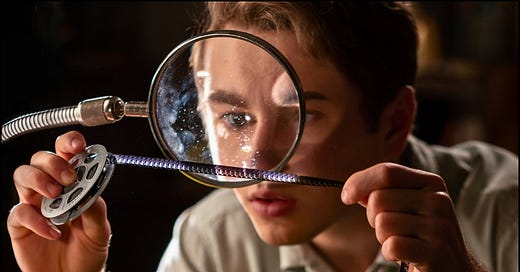"The Fabelmans": A new recipe for old ingredients
On the ways we are formed in childhood, and how artists return to familiar places to find new ways forward.
In our beginning, as T. S. Eliot told us, is our end. Freud himself never put it quite so succinctly. It was to the beginning that James Lipton once appealed in explaining the ending of Close Encounters of the Third Kind to the film’s own director, Steven Spielberg.
“Your father was a computer scientist, your mother a musician,” Lipton says. “When the spaceship lands, how do they communicate?”
For those who have forgotten the film’s climax, Lipton supplies the answer to his own question. “They make music on their computers, and they are able to speak to each other.” A visibly pleased Spielberg humbly replies, “I’d love to say I intended that, and I realised that was my mother and father, but not until this moment!”
While watching the beginning of Spielberg’s latest (hopefully not his last) film, I was brought back to that interview. The Fabelmans opens with a young Spielberg – pseudonymised as Sammy – standing in line outside of a cinema, waiting to see a feature film for the very first …
Keep reading with a 7-day free trial
Subscribe to Volumes. to keep reading this post and get 7 days of free access to the full post archives.





